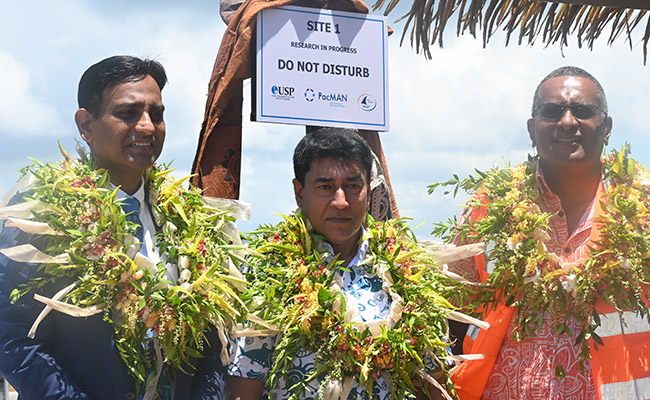
A project which aims to identify and monitor marine invasive species and protect local marine environments in the Pacific Islands, was inaugurated on November 24, in collaboration with the University of the South Pacific in Fiji.
The Pacific Islands Marine Bioinvasions Alert Network (PacMAN) Project with the Institute of Applied Sciences (USP-IAS) is committed towards building a marine invasive species monitoring plan with a decision support tool for managing marine alien invasive species.
The first research work will be undertaken at the Suva Harbour for 13 months. The support and close collaboration of the Fiji Ports Corporation Limited and the Maritime Safety Authority of Fiji enabled the identification of this ideal study site.
USP-IAS Acting Director, Dr Isoa Korovulavula said the launch was a significant occasion, as they moved collaboratively to a new frontier of protecting the local marine environment from invasive species.
He said the PacMAN Project is expected to boost local capability for early identification and warning of maritime invasive alien species.
"We are using revolutionary technology, such as DNA metabarcoding, to identify and deal with marine invasive alien species in our local marine environment."
IAS-USP as the implementer of PacMAN in Fiji provides capacity building in the form of technical training deemed necessary, shares analysed data and provides technical support to BAF, he said.
Chief Guest and Permanent Secretary for the Fiji Ministry of Waterways and Environment, Joshua Wycliffe said the world's oceans and seas are changing at an alarming rate.
“When we talk about biodiversity, we usually talk about how we handle it. We usually talk about overfishing and resource exploitation in the marine environment when we should be concentrating on our species' new invasions. Every day, these changes that we recognise in our human activities through ages are infiltrating our seas,” he said.
“The expansion of trade encourages the global distribution of organisms through the marine environment. Cleaning the hulls of ships and disposing of ballistic water are two examples. All of these factors play a significant role in the degradation and disturbance of maritime habitats around us."
He emphasised the significance of programs such as PacMAN in producing the response to measuring and making decisions based on scientific data.



